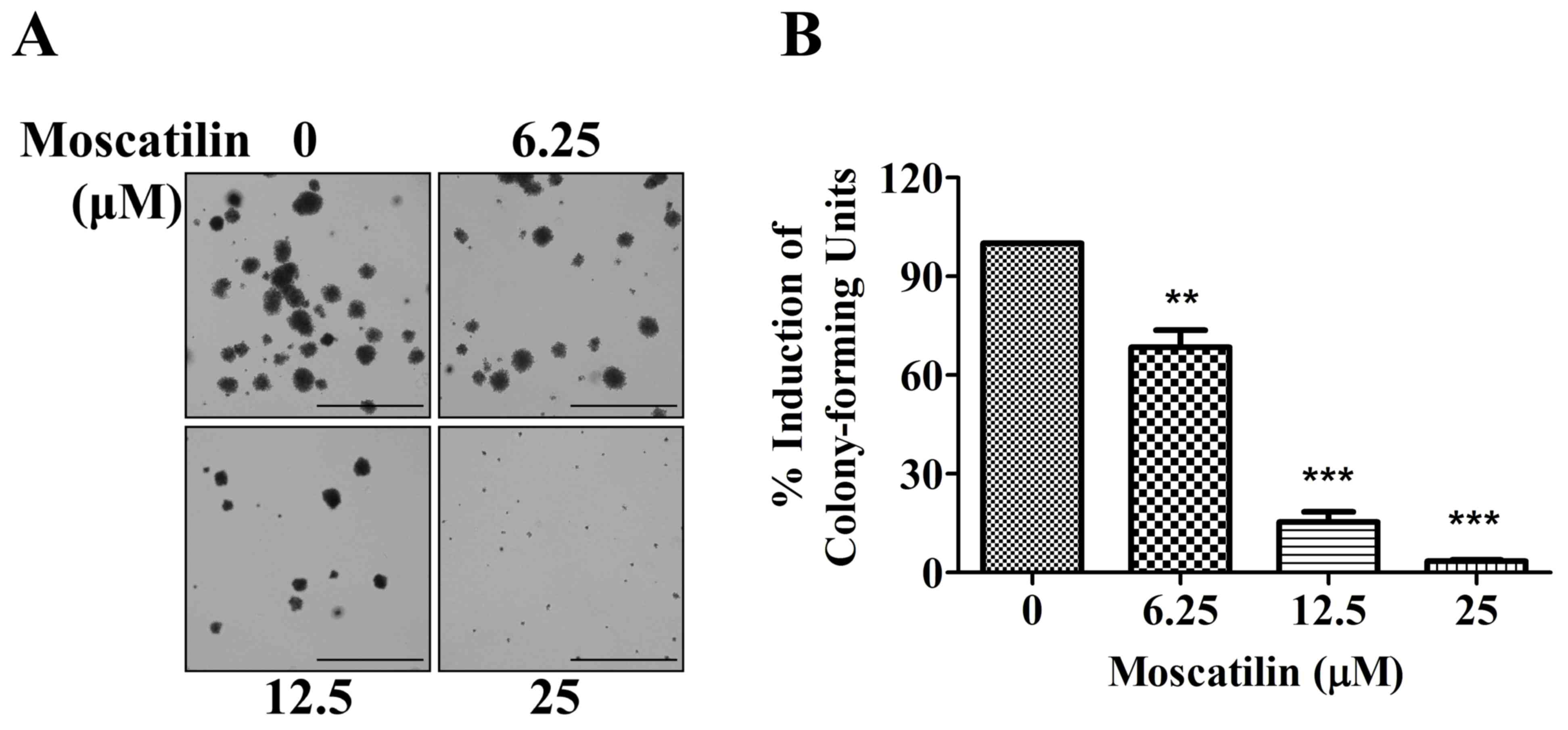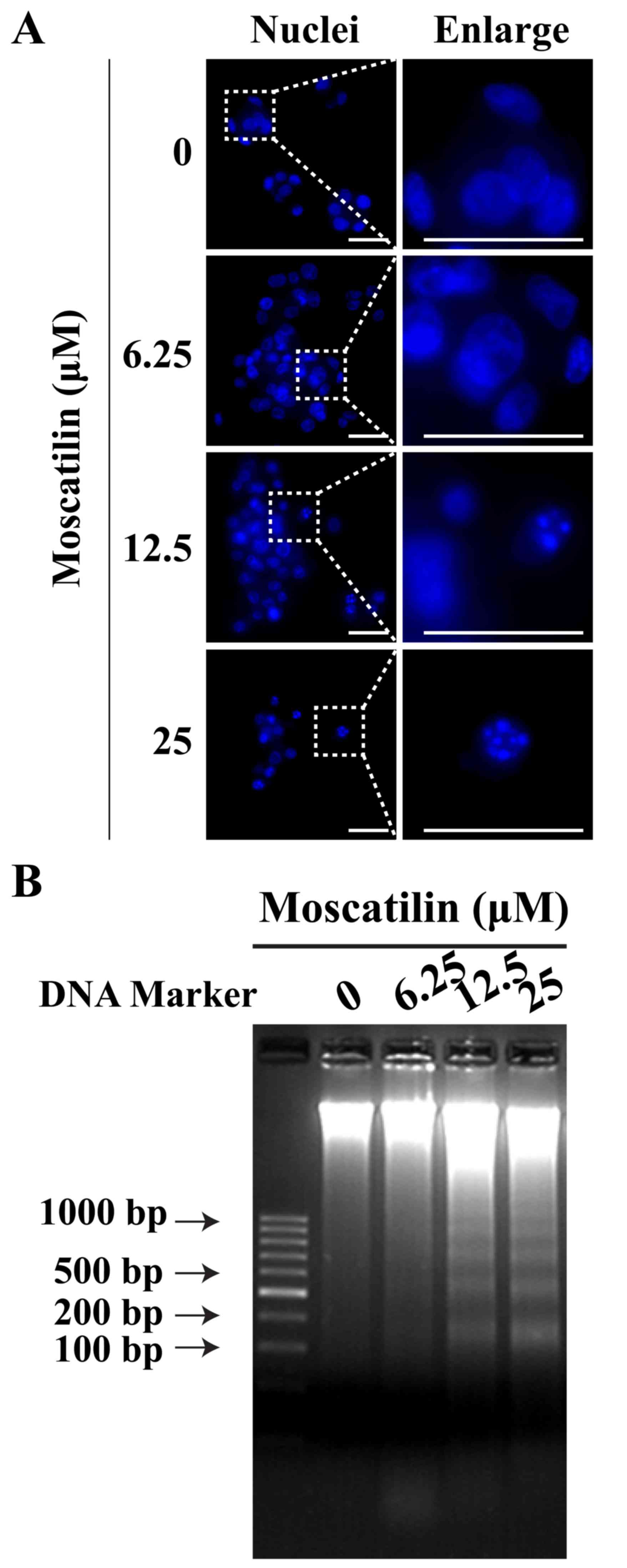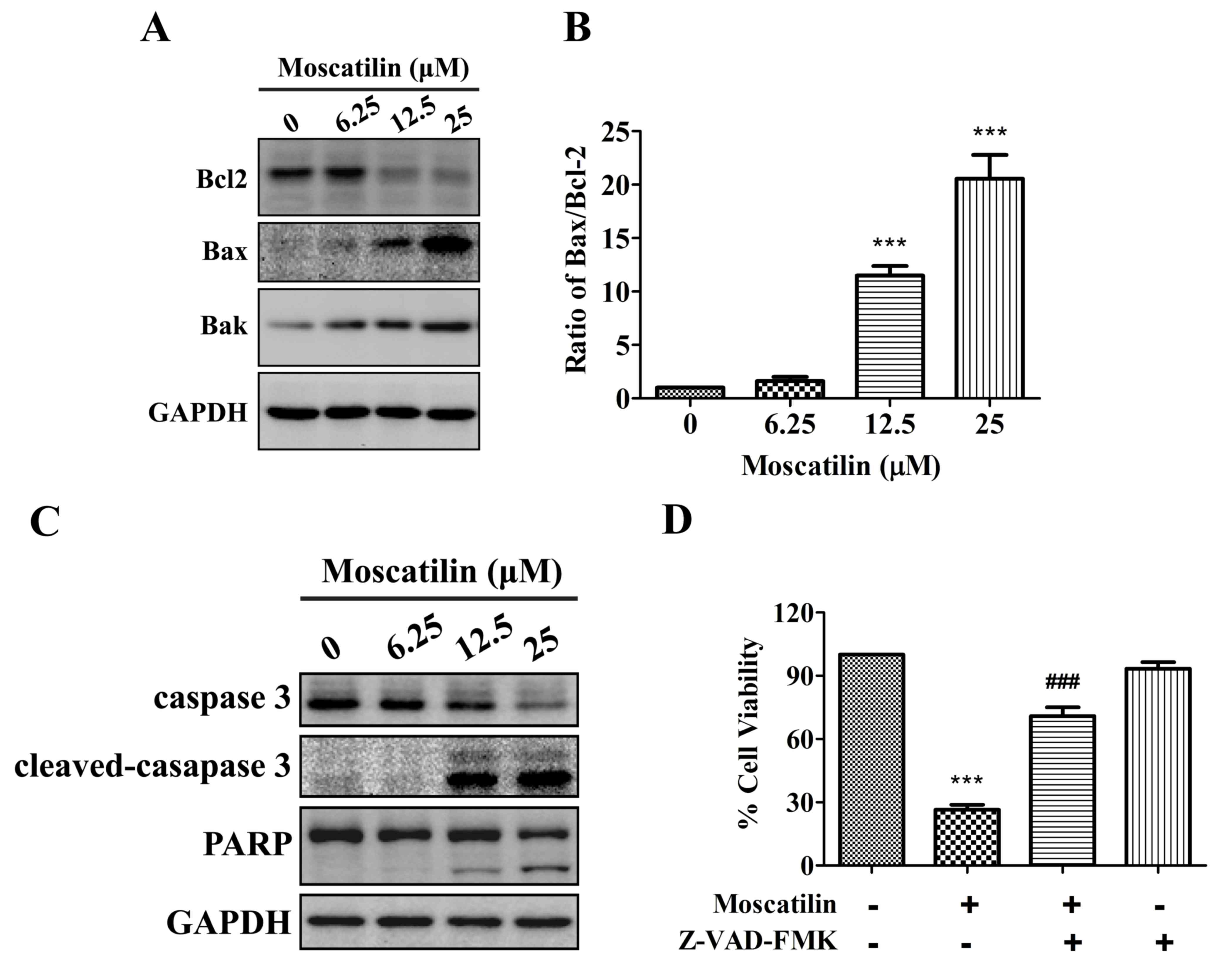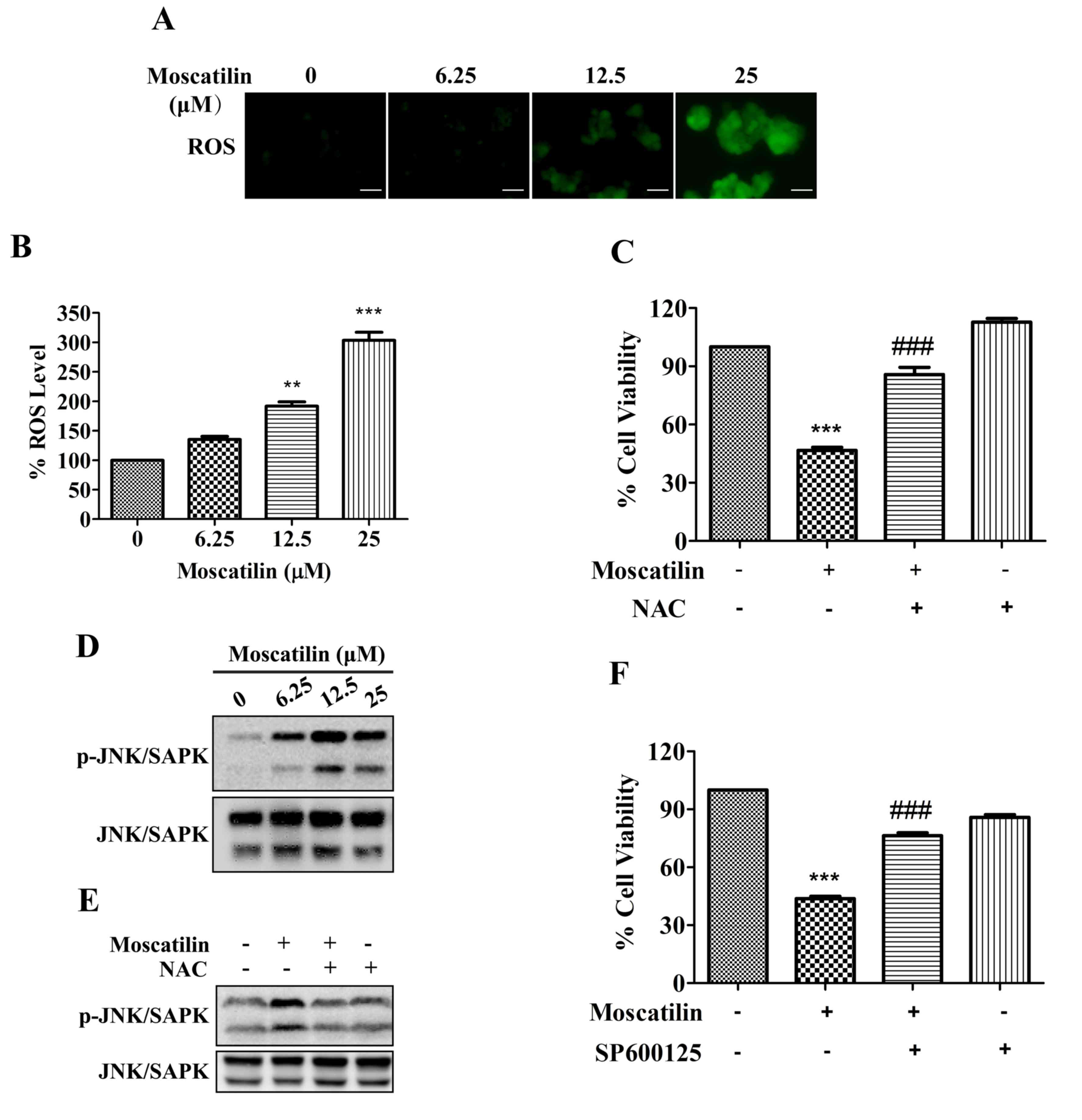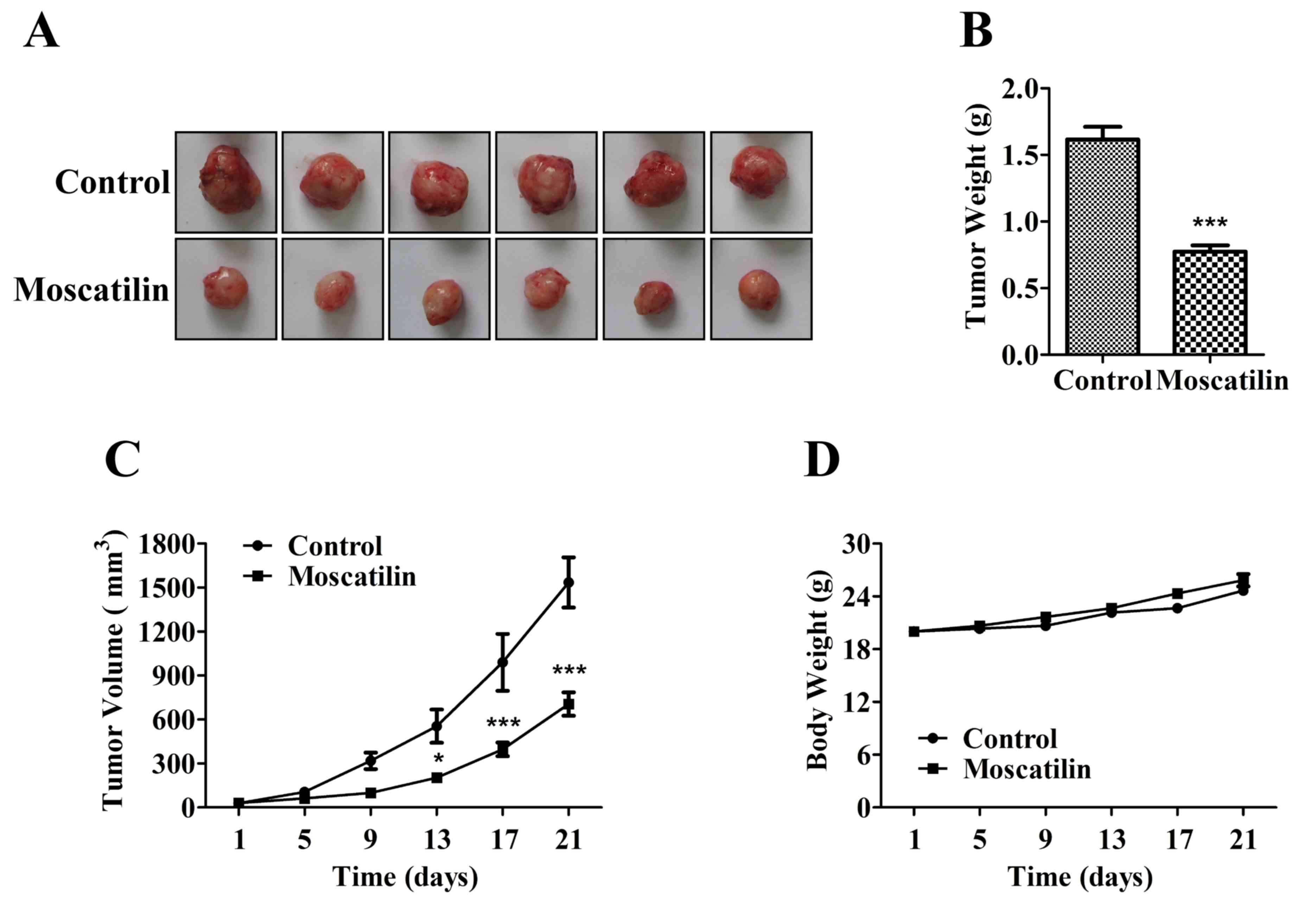|
1
|
Rahib L, Smith BD, Aizenber R, Rosenzweig
AB, Fleshman JM and Matrisian LM: Projecting cancer incidence and
deaths to 2030: The unexpected burden of thyroid, liver, and
pancreas cancers in the United States. Cancer Res. 74:2913–2921.
2014. View Article : Google Scholar : PubMed/NCBI
|
|
2
|
Wolfgang CL, Herman JM, Laheru DA, Klein
AP, Erdek MA, Fishman EK and Hruban RH: Recent progress in
pancreatic cancer. CA Cancer J Clin. 63:318–348. 2013. View Article : Google Scholar : PubMed/NCBI
|
|
3
|
Paulson AS, Cao Tran HS, Tempero MA and
Lowy AM: Therapeutic advances in pancreatic cancer.
Gasroenterology. 144:1316–1326. 2013. View Article : Google Scholar
|
|
4
|
Siegel R, Ma J, Zou Z and Jemal A: Cancer
statistics, 2014. CA Cancer J Clin. 64:9–29. 2014. View Article : Google Scholar : PubMed/NCBI
|
|
5
|
Liou GY and Storz P: Reactive oxygen
species in cancer. Free Radic Res. 44:479–496. 2010. View Article : Google Scholar : PubMed/NCBI
|
|
6
|
Alexandre J, Hu Y, Lu W, Pelicano H and
Huang P: Novel action of paclitaxel against cancer cells: Bystander
effect mediated by reactive oxygen species. Cancer Res.
67:3512–3517. 2007. View Article : Google Scholar : PubMed/NCBI
|
|
7
|
Paduch R, Kandefer-Szerszeń M and Piersiak
T: The important of release of proinflammatory cytokines, ROS, and
NO in different stages of colon carcinoma growth and metastasis
after treatment with cytotoxic drugs. Oncol Res. 18:419–436. 2010.
View Article : Google Scholar : PubMed/NCBI
|
|
8
|
Groninger E, Meeuwsen-De Boer GJ, De Graaf
SS, Kamps WA and De Bont ES: Vincristine induced apoptosis in acute
lymphoblastic leukaemia cells: A mitochondrial controlled pathway
regulated by reactive oxygen species? Int J Oncol. 21:1339–1345.
2002.PubMed/NCBI
|
|
9
|
Zhang X, Xu JK, Wang J, Wang NL, Kuriihara
H, Kitanaka S and Yao XS: Bioactive bibenzyl derivatives and
fluorenones from Dendrobium nobile. J Nat Prod. 70:24–28.
2007. View Article : Google Scholar : PubMed/NCBI
|
|
10
|
Chen CC, Wu LG, Ko FN and Teng CM:
Antiplatelet aggregation principles of Dendrobium
loddigesii. J Nat Prod. 57:1271–1274. 1994. View Article : Google Scholar : PubMed/NCBI
|
|
11
|
Hu JM, Chen JJ, Yu H, Zhao YX and Zhou J:
Two novel bibenzyls from Dendrobium trigonopus. J Asian Nat
Prod Res. 10:653–657. 2008. View Article : Google Scholar : PubMed/NCBI
|
|
12
|
Gong Y, Fan Y, Liu L, Wu D, Chang Z and
Wang Z: Erianin induces a JNK/SAPK-dependent metabolic inhibition
in human umbilical vein endothelial cells. In Vivo. 18:223–228.
2004.PubMed/NCBI
|
|
13
|
Gong YQ, Fan Y, Wu DZ, Yang H, Hu ZB and
Wang ZT: In vivo and in vitro evaluation of erianin, a novel
anti-angiogenic agent. Eur J Cancer. 40:1554–1565. 2004. View Article : Google Scholar : PubMed/NCBI
|
|
14
|
Pengpaeng P, Sritularak B and
Chanvorachote P: Dendrofalconerol A suppresses migrating cancer
cells via EMT and integrin proteins. Anticancer Res. 35:201–205.
2015.PubMed/NCBI
|
|
15
|
Charoenrungruang S, Chanvorachote P,
Sritularak B and Pongrakhananon V: Gigantl, a bibenzyl from
Dendrobium draconis, inhibits the migratory behavior of
non-small cell lung cancer cells. J Nat Prod. 77:1359–1366. 2014.
View Article : Google Scholar : PubMed/NCBI
|
|
16
|
Chen CA, Chen CC, Shen CC, Chang HH and
Chen YJ: Moscatilin induces apoptosis and mitotic catastrophe in
human esophageal cancer cells. J Med Food. 16:869–877. 2013.
View Article : Google Scholar : PubMed/NCBI
|
|
17
|
Pai HC, Chang LH, Peng CY, Chang YL, Chen
CC, Shen CC, Teng CM and Pan SL: Moscatilin inhibits migration and
metastasis of human breast cancer MDA-MB-231 cells through
inhibition of Akt and Twist signaling pathway. J Mol Med (Berl).
91:347–356. 2013. View Article : Google Scholar : PubMed/NCBI
|
|
18
|
Kowitdamrong A, Chanvorachote P,
Sritularak B and Pongrakhananon V: Moscatilin inhibits lung cancer
cell motility and invasion via suppression of endogenous reactive
oxygen species. Biomed Res Int. 2013:7658942013. View Article : Google Scholar : PubMed/NCBI
|
|
19
|
Tsai AC, Pan SL, Liao CH, Guh JH, Wang SW,
Sun HL, Liu YN, Chen CC, Shen CC, Chang YL and Teng CM: Moscatilin,
a bibenzyl derivative from the India orchid Dendrobium
loddigesii, suppresses tumor angiogenesis and growth in vitro
and in vivo. Cancer Lett. 292:163–170. 2010. View Article : Google Scholar : PubMed/NCBI
|
|
20
|
Yang L, Wang Y, Zhang G, Zhang F, Zhang Z,
Wang Z and Xu L: Stimulaneous quantitative and qualitative analysis
of bioactive phenols in Dendrobium aurantiacum var.
Denneanum by high-performance liquid chromatography coupled
with mass spectrometry and diode array detection. Biomed
Chromatogr. 21:687–694. 2007. View
Article : Google Scholar : PubMed/NCBI
|
|
21
|
Marin V, Kaplanski G, Grès S, Farnarier C
and Bongrand P: Endothelial cell culture: Protocol to obtain and
cultivate human umbilical endothelial cells. J Immunol Methods.
254:183–190. 2001. View Article : Google Scholar : PubMed/NCBI
|
|
22
|
Jo GH, Kim GY, Kim WJ, Park KY and Choi
YH: Sulforaphane induces apoptosis in T24 human urinary bladder
cancer cells through a reactive oxygen species-mediated
mitochondrial pathway: The involvement of endoplasmic reticulum
stress and the Nrf2 signaling pathway. Int J Oncol. 45:1497–1506.
2014.PubMed/NCBI
|
|
23
|
Kello M, Drutovic D, Chripkova M, Pilatova
M, Budovska M, Kulikova L, Urdzik P and Mojzis J: ROS-dependent
antiproliferative effect of brassinin derivative homobrassinin in
human colorectal cancer Caco2 cells. Molecules. 19:10877–10897.
2014. View Article : Google Scholar : PubMed/NCBI
|
|
24
|
Vriz S, Reiter S and Galliot B: Cell
death: A program to regenerate. Curr Top Dev Biol. 108:121–151.
2014. View Article : Google Scholar : PubMed/NCBI
|
|
25
|
Li MX and Dewson G: Mitochondria and
apoptosis: Emerging concepts. F1000Prime Rep. 7:422015.PubMed/NCBI
|
|
26
|
Solary E, Dubrez L and Eymin B: The role
of apoptosis in the pathogenesis and treatment of diseases. Eur
Respir J. 9:1293–1305. 1996. View Article : Google Scholar : PubMed/NCBI
|
|
27
|
Suliman A, Lam A, Datta R and Srivastava
RK: Intracellular mechanisms of TRAIL: Apoptosis through
mitochondrial-dependent and independent-pathways. Oncogene.
20:2122–2133. 2001. View Article : Google Scholar : PubMed/NCBI
|
|
28
|
Vaux DL, Cory S and Adams JM: Bcl-2 gene
promotes haemopoietic cell survival and cooperates with c-myc to
immortalize pre-B cells. Nature. 335:440–442. 1988. View Article : Google Scholar : PubMed/NCBI
|
|
29
|
Czabotar PE, Lessene G, Strasser A and
Adams JM: Control of apoptosis by the BCL-2 protein family:
Implications for physiology and therapy. Nat Rev Mol Cell Biol.
15:49–63. 2014. View
Article : Google Scholar : PubMed/NCBI
|
|
30
|
Tong LY, Chuang CC, Wu S and Zuo L:
Reactive oxygen species in redox cancer therapy. Cancer Lett.
367:18–25. 2015. View Article : Google Scholar : PubMed/NCBI
|
|
31
|
Surbramani R, Gonzalez E, Arumugam A,
Nandy S, Gonzalez V, Medel J, Camacho F, Ortega A, Bonkoungou S,
Narayan M, et al: Nimbolide inhibits pancreatic cancer growth and
metastasis through ROS-mediated apoptosis and inhibition of
epithelial-mesenchymal transition. Sci Rep. 6:198192016. View Article : Google Scholar : PubMed/NCBI
|
|
32
|
Tian X, Dai S, Sun J, Jiang S, Sui C, Meng
F, Li Y, Fu L, Jiang T, Wang Y, et al: Bufalin induces
mitochondrial-dependent apoptosis in pancreatic and oral cancer
cells by downregulating hTERT expression via activation of the
JNK/p38 pathway. Evid Based Complement Alternat Med.
2015:5462102015. View Article : Google Scholar : PubMed/NCBI
|
|
33
|
Lei YY, Wang WJ, Mei JH and Wang CL:
Mitogen-activated protein kinase signal transduction in solid
tumors. Asian Pac J Cancer Prev. 15:8539–8548. 2014. View Article : Google Scholar : PubMed/NCBI
|
|
34
|
Pearson G, Robinson F, Gibson Beers T, Xu
BE, Karandikar M, Berman K and Cobb MH: Mitogen-activated protein
(MAP) kinase pathways: Regulation and physiological functions.
Endocr Rev. 22:153–183. 2001. View Article : Google Scholar : PubMed/NCBI
|
|
35
|
Perugini RA, McDade TP, Vittimeberga FJ Jr
and Callery MP: Pancreatic cancer cell proliferation is
phosphatidylinositol 3-kinase dependent. J Surg Res. 90:39–44.
2000. View Article : Google Scholar : PubMed/NCBI
|
|
36
|
Tournier C: The 2 faces of JNK signaling
in cancer. Genes Cancer. 4:397–400. 2013. View Article : Google Scholar : PubMed/NCBI
|
|
37
|
Takahashi R, Hirata Y, Sakitani K, Nakata
W, Kinoshita H, Hayakawa Y, Nakagawa H, Sakamoto K, Hikiba Y,
Ijichi H, et al: Theraputic effect of c-Jun N-terminal kinase
inhibition on pancreatic cancer. Cancer Sci. 104:337–344. 2013.
View Article : Google Scholar : PubMed/NCBI
|
|
38
|
Jia G, Kong R, Ma ZB, Han B, Wang YW, Pan
SH, Li YH and Sun B: The activation of c-Jun
NH2-terminal kinase is required for
dihydroartemisinin-induced autophagy in pancreatic cancer cells. J
Exp Clin Cancer Res. 33:82014. View Article : Google Scholar : PubMed/NCBI
|
|
39
|
Li J, Liang X and Yang X: Ursolic acid
inhibits growth and induces apoptosis in gemcitabine-resistant
human pancreatic cancer via the JNK and PI3K/Akt/NF-kB pathways.
Oncol Rep. 28:501–510. 2012.PubMed/NCBI
|
















